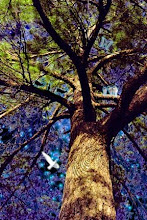PIEDMONT -- A slow, lingering melody floated down from the sanctuary as visitors entered the Kehilla Community Synagogue here on a recent Friday night. This wasn't the sound of some celebrated Jewish cantor warming up for services. It was the Muslim call to prayer, sung by Jafar Shenasa of the Islamic Cultural Center of Northern California.
Later, in this same space, Rev. Karen Stokes led a congregation of Christians, Muslims and Jews in a dynamic Christian "body prayer," a song and dance celebrating the power of love.
And Rabbi David Cooper preached the story of Jethro and Moses, in which Jethro, a non-Jew, teaches the great Jewish prophet a thing or two about sacred law. It was a lesson, Rabbi Cooper said, in how religions can learn from one another.
This rare interfaith gathering was created by Kehilla, a progressive Jewish Renewal Synagogue, the Montclair Presbyterian Church and the Oakland-based Islamic Cultural Center. The occasion was the first night of Sukkot, the Jewish holiday of harvest and hospitality. These three religious communities in the Oakland area used the event to begin to forge long-lasting connections.
The event honored the coincidence of the Jewish month of Tishrei, the Muslim month of Ramadan, and World Communion Sunday, a holiday celebrated by certain Protestant churches every fall.
The Jewish and Muslim months intersect for three years about every 30 years, Rabbi Cooper explained.
"We want to take advantage of this convergence to act as a model for the world we're in, this world which has so much divergence," he said.
The evening started with Muslim prayers. A group of nine Muslims spread their carpets out, angled diagonally across the sanctuary to face due East, and quietly prayed, as Christian and Jewish guests looked on.
As they walked downstairs after, Nahid Farazian, a petite Muslim lady with a warm gaze, wiped tears from her eyes, and explained herself to another guest.
"I was crying when we finished our prayer," she said. "When you concentrate in a deep, quiet place, you feel it. You are getting in tune with the universe."
Downstairs, the Jewish candle-lighting chant burst out cheerfully, the smells of food tempting in the background. Kefilla song leader Julie Nesnanski led the singing, her blond curls bouncing out of place under a little black skullcap.
Reverend Stokes brought bread to the meal that had been blessed at her church. She explained there was an old tradition of blessing bread in church, after the communion and sharing it with family and friends. She said she offered the bread as a sign of "God's radical hospitality."
Sukkot was traditionally a holiday to celebrate all peoples of the world, and in ancient Jewish history it was celebrated with 70 animal sacrifices. Animal sacrifice may be a thing of the past, but Rabbi Cooper suspected there were 70 potluck dishes at the spread.
As they ate, guests struck up conversation with people whose faiths generally preach mutual exclusivity. It was an atmosphere of family reunion. With the help of name-tags, people were soon on a first name basis.
"We should do this more often. We should bring it to other synagogues, churches, mosques," said a man named Muhammad.
"Yes. I think it will happen, " said Judy, his Jewish hostess of the moment. "It will happen."
Between bites of a sweet date cookie, Muhammad had a thought to share about interfaith connections.
"It's like, we all want to go to LA. Maybe you decide to fly there and I take Highway 101, but we all want to get to the same place…we all believe in God—Jews, Christians, Muslims. We should get together more."
Ali Sheikholeslami, the imam of the Islamic Cultural Center, quoted passages from the Koran promoting tolerance and cooperation between religions. He explained parts of the Koran that seem to advocate sectarian violence have been taken out of context by radicals.
Then he recited two poems from Iranian Sufi poet Rumi, including a line: "All religions, all this singing, one song." And the audience replied, ‘Amen!'
At the end of the evening, Rabbi Cooper led guests out to the courtyard where the synagogue had built a succah, a traditional hut for celebrating the harvest meal.
Under a roof of palm leaves, the Rabbi showed volunteers how do a blessing with a fragrant bundle of myrtle, citron, palm and willow. As they shook the bundle in six directions to bless all peoples around the word, Rabbi Cooper urged them to take a moment for reflection.
"Give consideration to the past," he said. "And reflect on the future, which we are making right here."

No comments:
Post a Comment